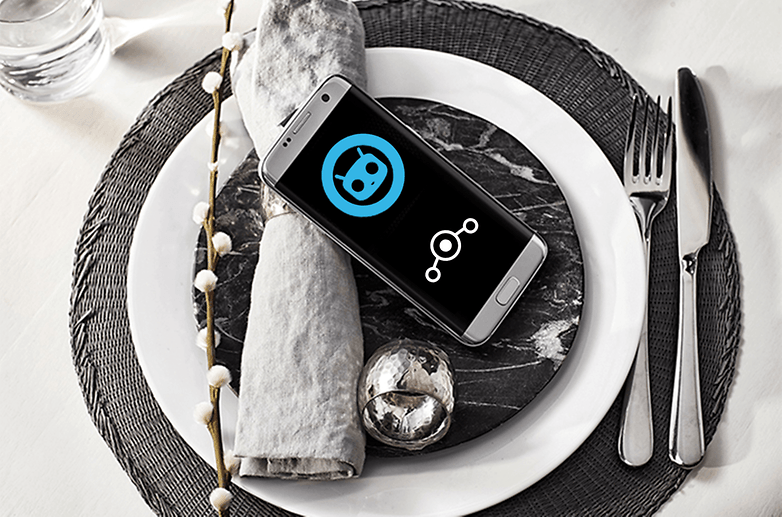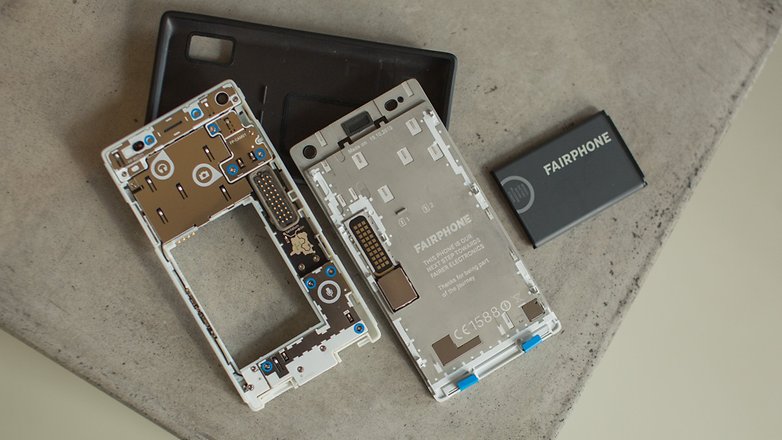Has the era of custom ROMs come to an end?


There is a clear picture emerging as far as the software update policy offered by smartphone manufacturers is concerned with Samsung pointing the way forward. But what does this mean for custom ROMs which have long been hailed as the only way we could prolong the life of older devices? Could this be the beginning of the end for custom ROM distributions? That's our point of discussion in today's article.
Several Android communities came into existence centred around technical discussions about such older devices. And the one subject that fueled topics, news, and comments, in particular, was well, custom ROMs. And it was pretty much the case with us here on NextPit which once used to have a vibrant community of modders.
The background of custom ROMs
In a nutshell, custom ROMs are standalone versions of Android that can be installed on devices. The process usually involves replacing the bootloader, which is what the device's boot system is called, by installing the new operating system over it. Among the most famous examples are CyanogenMod or even MIUI itself, which for a while was viewed as an alternative for smartphones from other brands.
Manufacturers did not always agree with the practice as this violates the factory warranty. But for a few years (when all of this was in the wild, wild west), discussions surrounding ROMs were very popular, as they allowed to extend the life of the smartphone, and sometimes even offered better performance than the original smartphone itself.
Some will say that there was never really an era of custom ROMs, as the installation process was never quite simple enough for most devices. There was also the issue of a wide range of versions and requirements that prevented the popularization of custom ROMs. And now, with smartphone manufacturers finally taking the initiative to deliver security updates on Android for a longer period of time (as highlighted by Samsung recently), whispers of the age of custom ROMs being over are starting to gather steam.
Don't get me wrong, I'm not saying that custom ROMs are dead. There will always be room for custom solutions, which are more than ready to serve devices that have already been abandoned by manufacturers and offer an extra degree of lifespan for older devices.

The rise and fall of CyanogenMod
That said, there was a time when it looked like we were about to see custom ROMs become mainstream. Even the developer Cyanogen - responsible for the famous CyanogenMod distribution - was hired by Samsung.
Shortly after that in 2013, Cyanogen Inc. was founded to market the distribution, and this move generated distrust among the community that supported (and worked) on the ROM for years. Even after the injection of capital by investors, Microsoft included, the project ended up breaking commitments signed with OnePlus and, at the end of 2016, announced the end of the entity that once compiled and distributed the ROMs.
The ideals of the project continue to survive in the form of its direct successor, LineageOS, with a similar development infrastructure, tracking of AOSP releases, and distribution of Nightly trial versions across a wide range of devices.
However, the prominence given to each new release and smartphone supported by CyanogenMod does not seem to be repeated with LineageOS, despite the system still offering the benefits of Android updates, performance, and customization levels. Even the frequent changelogs on the official blog seem to be increasingly rare, leaving the activity log in the project's source code as the main reference point when it comes to keeping track of the latest changes in ROM development.
Still strong among niche brands
Millions of people use devices equipped with custom ROMs - with over three million running LineageOS, according to the distribution statistics. But the view that standalone systems would become mainstream seems to be nothing but a pipe dream today.
Custom ROMs still play an important role on niche devices, such as F(x)tec Pro 1X, developed with the collaboration of the XDA site, which is another community that was birthed because of Android system customizations.

What's more, the work of documenting specifications and drivers helps devices like the Fairphone 2 receive system updates years after its SoC was dropped by the component vendor. The sustainable smartphone launched in 2015 - with Android 5.1 and Snapdragon 801 on board, only beginning to receive Android 9 this week with official support from the company, courtesy of the hard work done by the LineageOS community, never mind that Android 12 will be the flavour of 2021.
This same degree of commitment enables, for instance, devices equipped with the same chip, such as the OnePlus One, Samsung Galaxy S5, LG G3, Sony Xperia Z3, and Moto X which have all been long abandoned by manufacturers, receive new unofficial versions of Android.

What's the future of custom ROMs?
Still, it seems that things haven't changed much since the days when I needed to unlock the bootloader of the Xperia Play or Motorola Defy, while performing a check as to whether I downloaded the appropriate build for the regional version of the smartphone, while following a series of steps carefully and booting up the device while keeping my fingers crossed that I did not make a fatal misstep earlier, all before installing the GApps package.
To answer my own clickbait question: no, custom ROMs have not received their death knell, and their importance remains the same as it was a decade back (has it been that long already?). However, the dream that one day, any user will be able to install them with just a few steps from the factory ROM, as a mainstream solution to the short update cycle provided by companies remains a distant dream.
Today, we are at least blessed by better update processes, more frequent security fixes, and features that are independent of Android versions. I would even like to believe that this change was motivated by the community of volunteers around the world who work to extend the support of our smartphones to this very day.
But this change in attitude by some manufacturers is relevant only for recent releases or models, which are not exactly the focus of the work of ROMs developers: who continue to dig and develop software for old smartphones. Of course with the uncertain future of certain brands such as LG, there will always be more devices to update.
What about you? Do you believe that custom ROMs will continue as an exclusive community of enthusiasts? Or is there still a chance for a new OnePlus to emerge, embracing an Android distribution from the community and bringing it to the general public? Let us know what you think in the comments.














I think it's less important than earlier but still important to many including me. Enthusiasts still want the control and the privacy. With Linux phones starting to offer full freedom, Android will have to increase user control to compete.
-
Admin
-
Staff
Apr 1, 2021 Link to commentGood points. But I wonder if Google feels threatened enough to cede control of its platform, even if a small one. :/
Probably not cede control, no. But give me a full firewall so I control what's accessing the net and when. Give me full privacy control on apps. Or even let me de-skin the bloat out rather than just some app disabling.
Those are probably the big three things for me with root power, even without a ROM.
I do minor mods to the Samsung Note 10+, Note 20 Ultra and the Tab A 8.0 (2019). First of all, I enjoy making these mods. Secondly, if manufacturers would incorporate some of the mods as 'options' to their ROMS, then there may be fewer people unlocking their bootloaders. Also, I do not understand why manufacturers don't sell phones with unlocked bootloaders. People who would buy these phones understand there would probably be no warranty. Or, let these buyers buy a warranty for the unlocked phones. It's a win-win for both the developers and the manufacturers!!
-
Admin
-
Staff
Apr 1, 2021 Link to commentYeah! It once felt like they were going to sell truly unlocked phones (some companies were even helping developers actively), but then it all went downhill...
Essential was close to this. I think the engineers from Essential who have a launched a new phone company will continue in this vein. I can't think of its name off hand.
I think Fairphone will drift this way, as the influence and driver support from Pinephone and Librem will open up other hardware paths.